
Basilica Di San Vitale A Ravenna husdezaw
Two of the most famous mosaics are found flanking the windows beneath the apse; the one depicting the Emperor Justinian (clad in imperial robes of Tyrian purple) with his retinue and St. Maximianus (the bishop who completed construction of the basilica) with two of his deacons.

Eastern Roman The Basilica of San Vitale
It is located in the heart of Ravenna, a few steps from some of the most suggestive monuments of the old town, such as the Mausoleum of Galla Placidia, the Domus of the Stone Carpets, the National Museum and many others. The basilica was built to witness the greatness of the Byzantine Empire, especially of the Justinian era.
The Basilica of San Vitale is a church in Ravenna Italy. Built in 547 AD by the Emperor
The Basilica of San Vitale is a late antique church in Ravenna, Italy. The sixth-century church is an important surviving example of early Byzantine art and architecture, and its mosaics in particular are some of the most-studied works in Byzantine art. It is one of eight structures in Ravenna inscribed on the UNESCO World Heritage List.
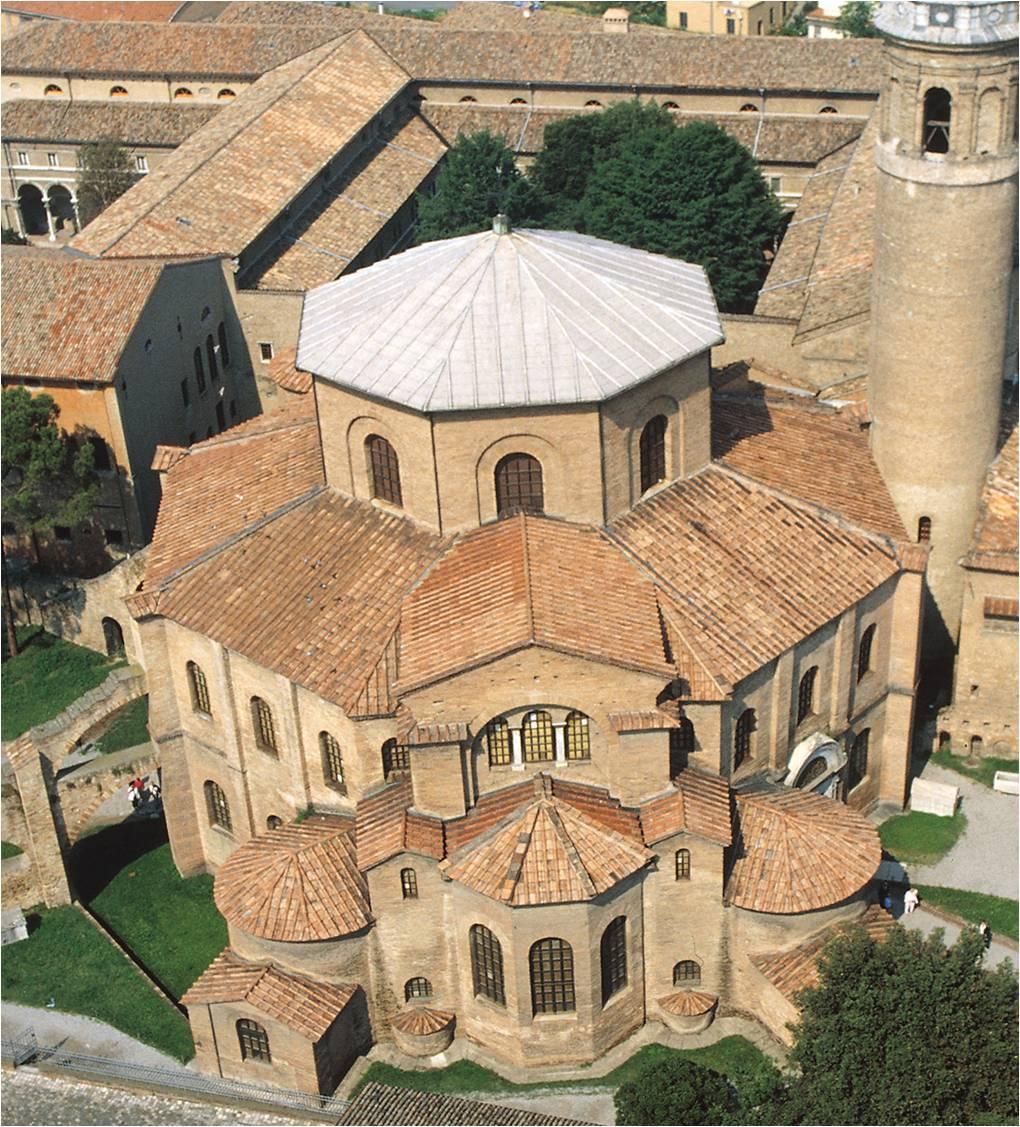
Sound and Sights of 6th century San Vitale Medieval Histories
210 Basilica of San Vitale. deepbluehue (Atlas Obscura User) Completed in 547, this cathedral is world renowned for its Byzantine mosaics. All the mosaics are depicted in the Hellenistic-Roman.

Basilica di San Vitale, Ravenna, Emilia Romagna Gothic Furniture, Exterior, Basilica, Unesco
The Basilica of San Vitale is one of the top sights to see in Ravenna, Italy. This church dates from the early sixth century and is as interesting for its architecture as for its Byzantine wall mosaics. It influenced church architecture for centuries while the mosaics are the largest and best-preserved outside Istanbul.

Visitare la Basilica di San Vitale a Ravenna Viaggi Low Cost
The basilica of San Vitale was built in the middle of the 6th century, under the rule of Emperor Justinian: it is the only church that remains from this period of history. It takes its name from Saint Vitale, a Roman slave who became a martyr and who was said to be buried alive in a well in this location.
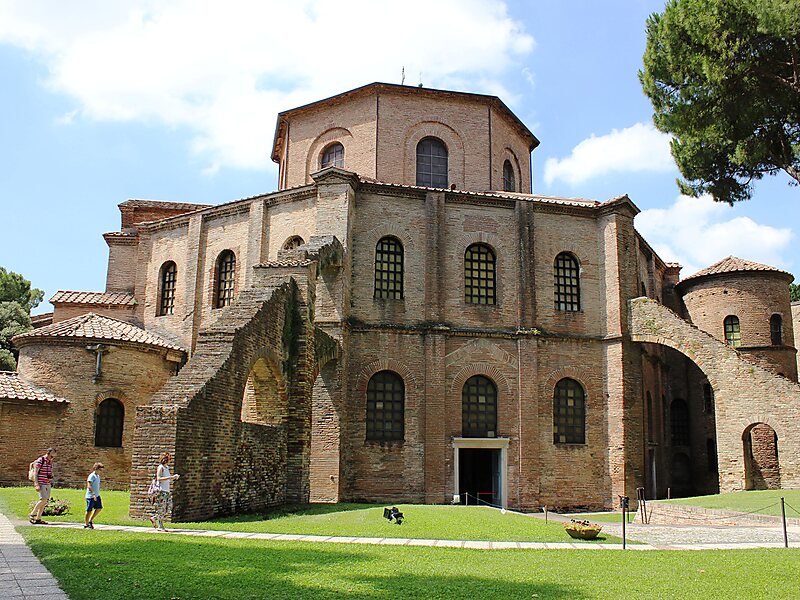
Basílica de São Vital em Ravenna, Itália Sygic Travel
A bit of history Bishop Ecclesius built San Vitale in 525 after his journey to Constantinople, taking advantage of the financing of Giuliano Argentario. The church incorporates a previous sacellum from the V century, dedicated to San Vitale. It was consecrated in 547 by the bishop Maximian, commissioner of the interior decorations.

Basilica of San Vitale, Ravenna, Italy
San Vitale The Church of San Vitale, located in northwestern Ravenna, is a remarkable example of Late Antique architecture. While it was begun when Ravenna was still under Ostrogothic rule, it is Byzantine in style and similar to the Church of Saints Sergius and Bacchus built by Justinian in Constantinople around the same time.
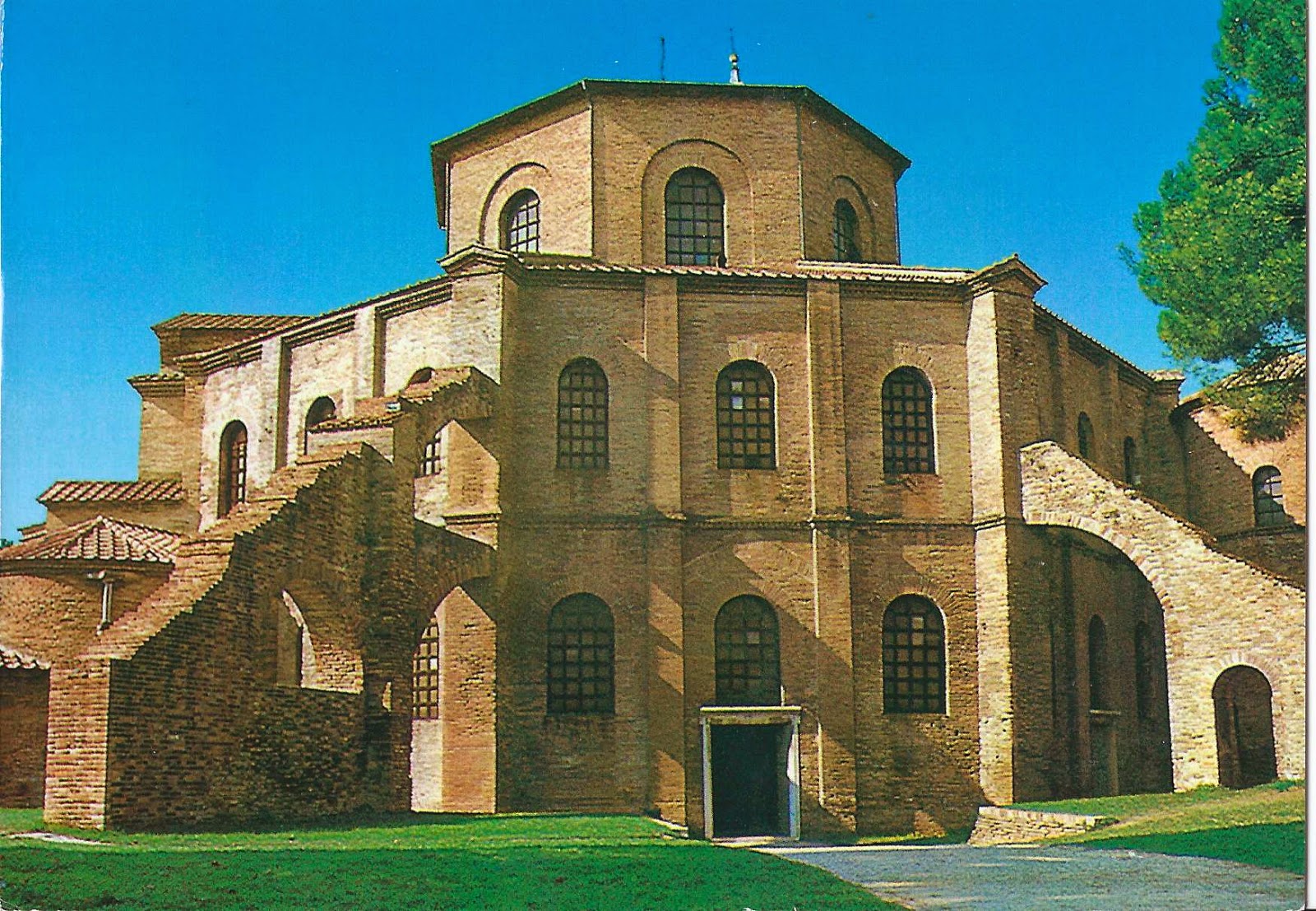
A Journey of Postcards Basilica of San Vitale, Ravenna Italy
Church of San Vitale, church in Ravenna, Italy, that was built in the 6th century and is considered a masterpiece of Byzantine architecture. It is especially noted for the colorful mosaics of Christian iconography that decorate the interior walls and ceilings.
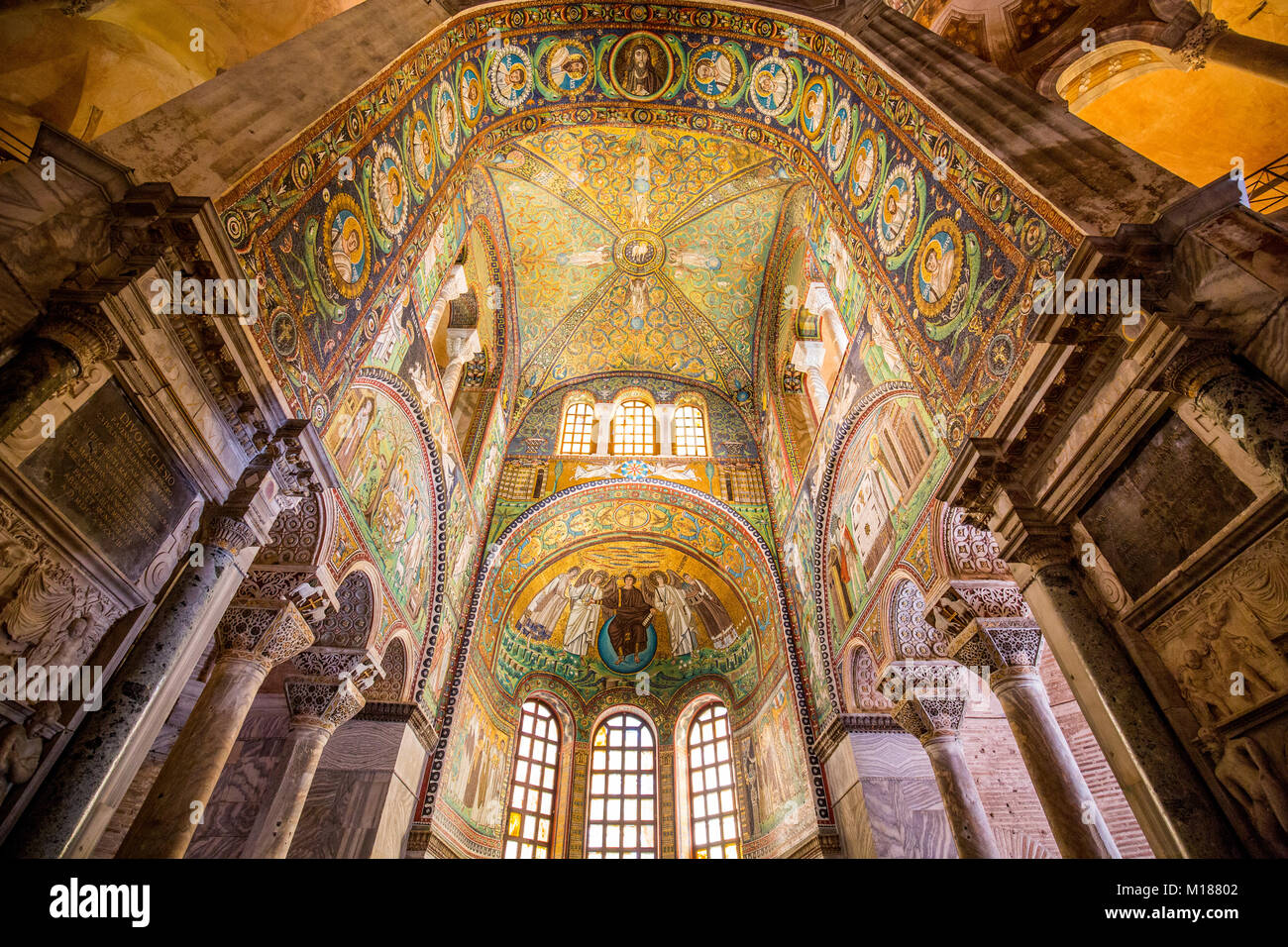
Basílica de San Vitale en Ravenna, Italia Fotografía de stock Alamy
Print When Byzantine Emperor Justinian conquered Italy in the 6th century, he continued the building of a fantastic, octagonal church, the San Vitale Basilica in Ravenna. The church was a testament to the glories of Jesus and secondarily of Justinian himself and his wife, Theodora.

Visite Basílica de San Vitale em Ravenna
San Vitale, Ravenna. The video explores the vibrant mosaic of Emperor Justinian and his attendants in the Basilica of San Vitale, Ravenna. The artwork symbolizes Justinian's authority and the unity of the church and state. The intricate details and rich colors highlight the Byzantine Empire's artistic prowess.

Basilica di San Vitale a Ravenna, i mosaici e il labirinto da non perdere
English: The Church or Basilica of San Vitale— styled an "ecclesiastical basilica" in the Roman Catholic Church, though it is not of architectural basilica form— is the most famous monument of Ravenna, Italy and is one of the most important examples of Byzantine Art and architecture in western Europe. The building is one of eight Ravenna structures inscribed on the UNESCO World Heritage List.
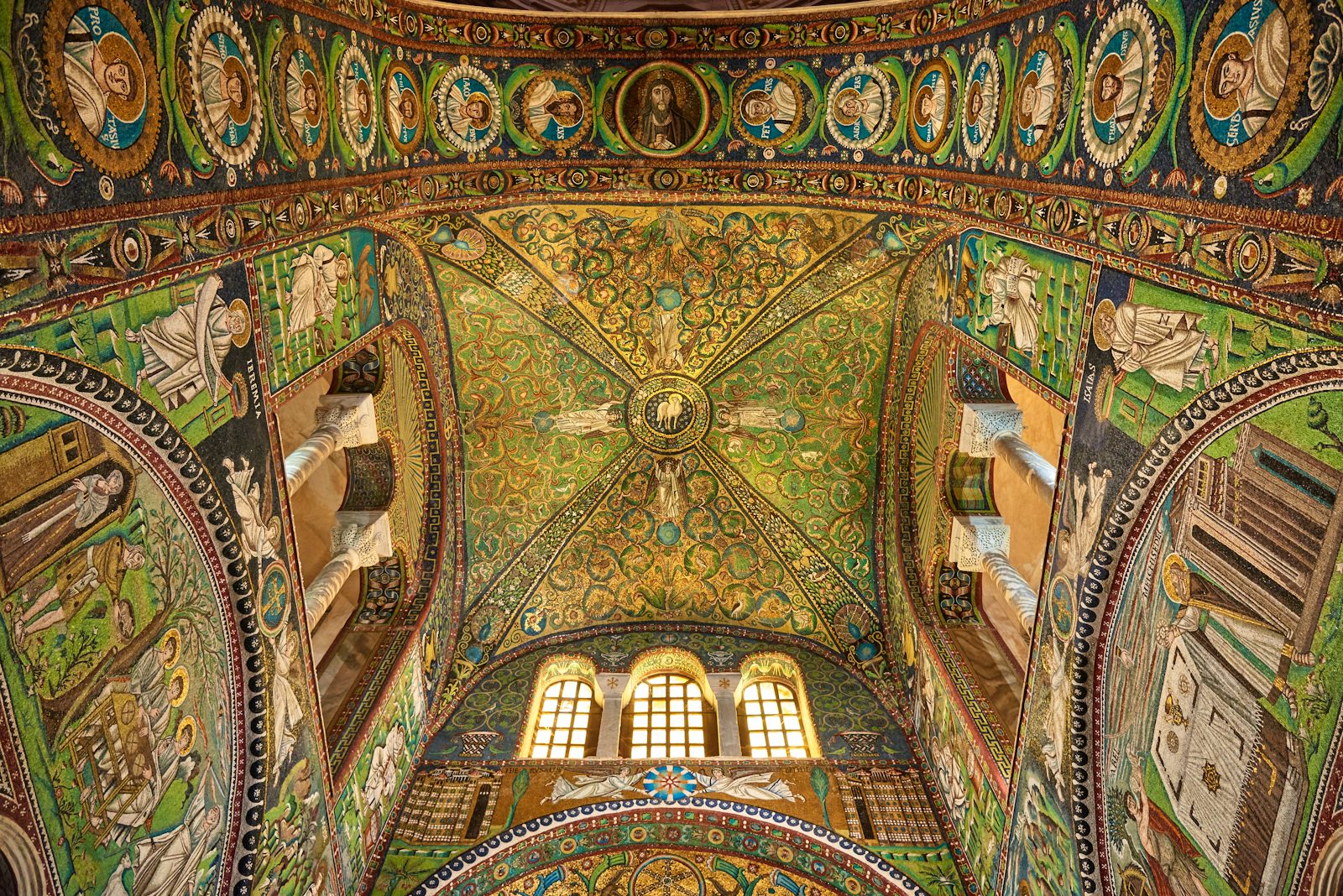
Travel inspired Location Basilica of San Vitale itinari
Basilica di San Vitale 4,757 reviews #1 of 127 things to do in Ravenna Historic SitesReligious Sites 9:00 AM - 7:00 PM Write a review About History As a symbol of the Archiepiscopal Chancellery of Ravenna, San Vitale is one of the greatest works of late Roman art.
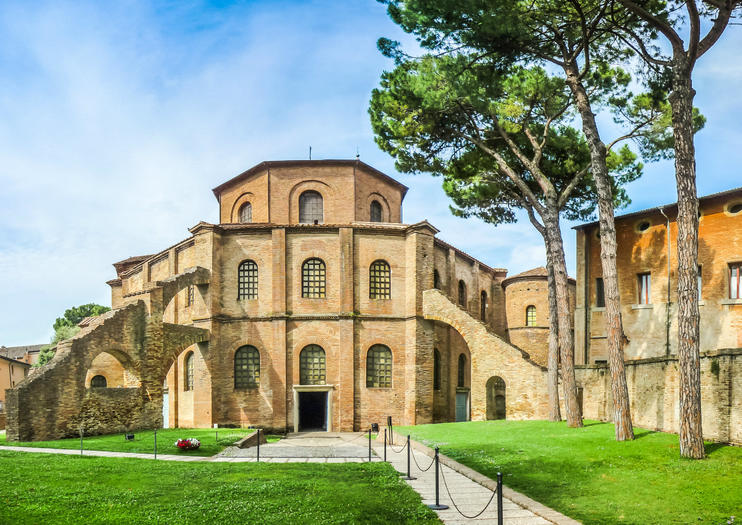
The 10 Best Basilica of San Vitale (Basilica di San Vitale) Tours & Tickets 2020 Ravenna Viator
San Vitale is one of the most important surviving examples of Eastern Roman "Byzantine " Empire architecture and mosaic work. It was begun in 526 or 527 under Ostrogothic rule. It was consecrated in 547 and completed soon after. San Vitale, begun c. late 520s, consecrated 547, mosaics date between 546 and 556.
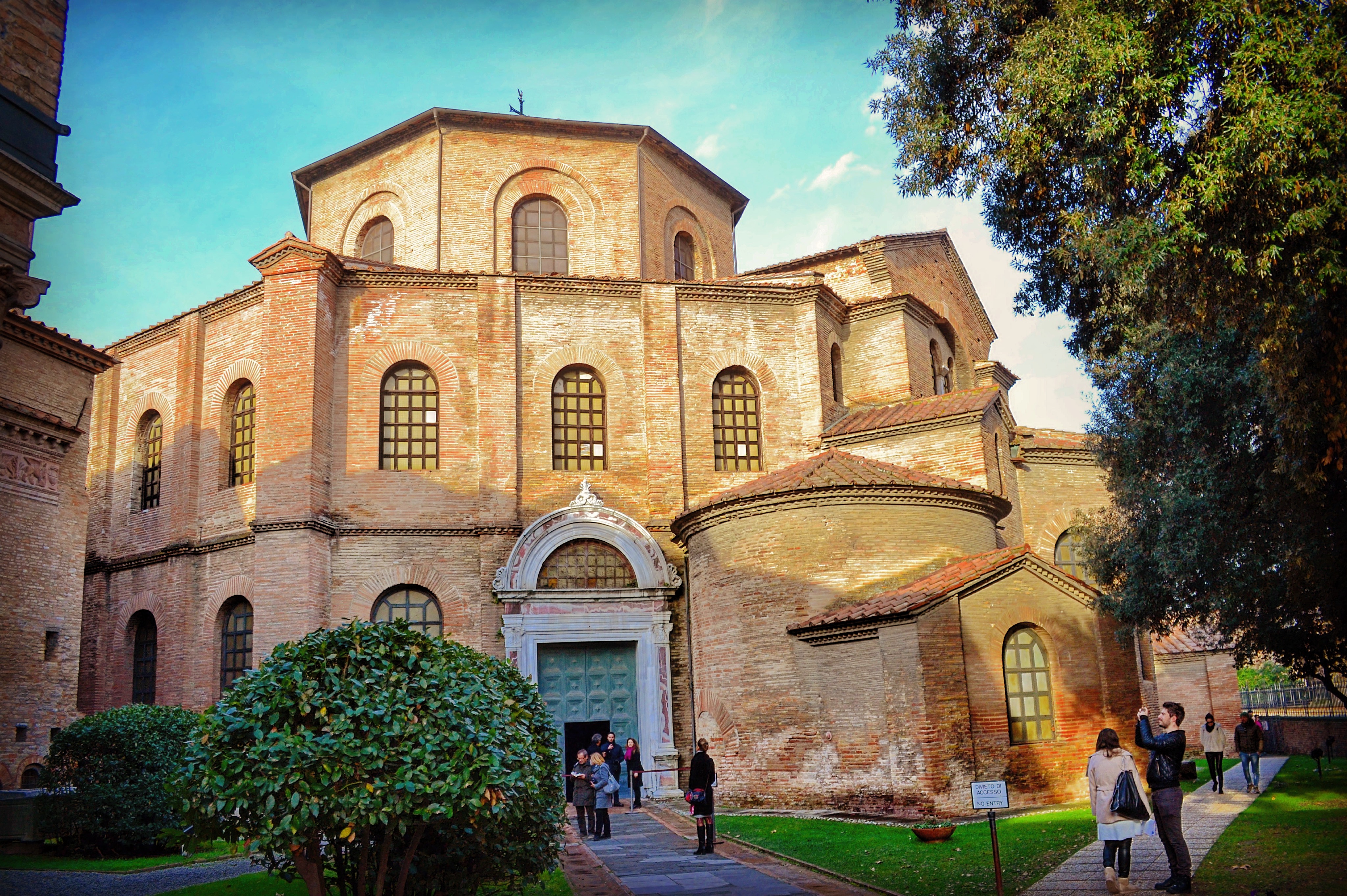
Basilica di San Vitale Ravenna Viaggiare, uno stile di vita
MLA Style. Raddato, Carole. " The Presbytery of Basilica of San Vitale, Ravenna ." World History Encyclopedia. World History Encyclopedia, 23 Jan 2016. Web. 02 Jan 2024. The presbytery of Basilica of San Vitale in Ravenna (Italy) with its magnificent Byzantine mosaics, built between 527 - 548 CE.

Ravenna II. Basilika San Vitale Rodon
Nestled amidst the ancient city of Ravenna, Italy lies the Basilica of San Vitale, a breathtaking testament to Byzantine art and architecture. Constructed in the 6th century, this magnificent.